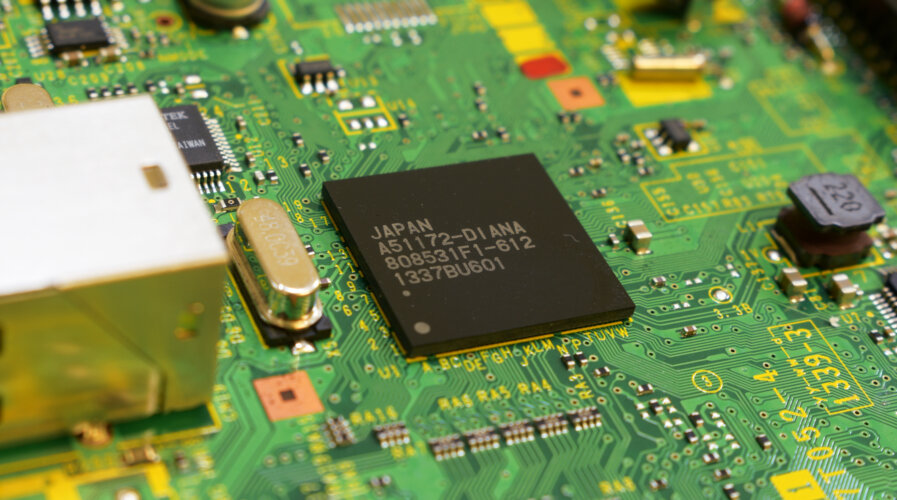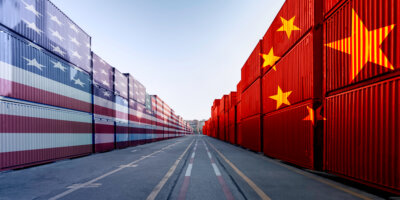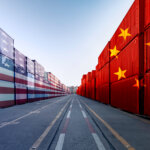
Japan remains in a state of limbo after the Dutch join the US in restricting chip exports to ChinaSource: Shutterstock
Japan remains in a state of limbo after the Dutch join the US in restricting chip exports to China
- Japan’s trade minister said the administration has yet to decide on restrictions for exports of chip-making equipment.
- It reflects how US allies struggle to balance Washington’s concerns about China’s access to leading-edge technology with their reliance on the world’s biggest manufacturer.
Japan and the Netherlands are where some of the world’s largest manufacturers of semiconductor manufacturing equipment are headquartered. When the United States (US) approached the Netherlands and Japan in January to join it in expanding a ban on exports of chip-making technology to China, both countries agreed in principle.
After all, the US-driven export controls could only effectively choke China off entirely if Washington gets support from allies that play a significant role in the global chip supply chain. However, since a verbal deal was reached between those three nations in January 2023, neither Tokyo nor The Hague revealed any details — until last week.
On March 9, the Dutch government revealed the first public details on its approach, which amounts to an intention to impose export restrictions on the “most advanced” semiconductor technology. A day later, Japan indicated that it has yet to decide on restrictions for chip gear exports.
In short, while the Hague abided by the US’ request to limit sales to China in January, Japan is taking a more cautious approach. According to experts, the move is expected of some American allies as they seek a middle ground between Washington and Beijing. The Netherlands trade minister, Liesje Schreinemacher, wrote to parliament last week, outlining the new measures without specifying which chip-making machines were affected.
The Netherlands, home to ASML Holding NV, plans to curb exports of some so-called immersion DUV lithography products to China. That rule, expected to be published before the summer, adds to existing restrictions for the most cutting-edge lithography machines, critical to producing the world’s most advanced chips.
On the other hand, Japanese Trade Minister Yasutoshi Nishimura said the country would consider appropriate measures in light of developments in the Netherlands. “Our understanding is that the Dutch announcement does not target a specific country.” In Japan, Tokyo Electron Ltd. is a crucial supplier of chip machines used to make semiconductors, along with US rival Applied Materials Inc.
Unfortunately, many US allies struggle to balance Washington’s concerns about China’s access to leading-edge technology with their reliance on the world’s biggest manufacturer. In February, an influential Japanese ruling party lawmaker told Reuters that Japan might opt for milder export restrictions on chip production machinery to China than those implemented by the US even though they agree on export curbs.
“The US is strict, but there is a question of whether we must match that exactly. What we do share is a recognition of the concern over the equipment,” said Akira Amari, a former Liberal Democratic Party minister of economy, trade, and industry. Should Japan go for separate restrictions, it could be a political headache for the Biden Administration because it can make the US equipment less competitive than its rivals.
Last month, SEMI, an industry group representing 2,500 semiconductor and electronics manufacturing supply chain members, warned that export controls on China would only be adequate if US allies adopt curbs aligned with the United States. According to the local Japanese media outlet Kyodo, Japan is trying to reduce the risk of retaliation from Beijing by not specifying China directly in the restrictions.
However, it is also fair to note that Japan’s minister of economy, trade, and industry, Yasutoshi Nishimura, has voiced how it’s also absolutely imperative for them to reinforce their cooperation with the US in the area of export control.” Nishimura reckons the move is essential, especially “to address the misuse of critical and emerging technologies by malicious actors and inappropriate transfers of technologies.”
Besides collaborating to restrict chip exports, Japan is also a part of The Chip Alliance proposal, which includes South Korea, Taiwan, and the US. The countries in the alliance each excel in specific segments of the semiconductor industry. For the US, combining the strength of each participant will create a complete semiconductor supply chain that runs from design to manufacturing.
The US and Japan launched a high-level economic dialogue in June last year, pushing back against China and countering the disruption caused by Russia’s invasion of Ukraine. The two long-time allies agreed to establish a new joint research center for next-generation semiconductors during the economic “two-plus-two” ministerial meeting in Washington.
READ MORE
- 3 Steps to Successfully Automate Copilot for Microsoft 365 Implementation
- Trustworthy AI – the Promise of Enterprise-Friendly Generative Machine Learning with Dell and NVIDIA
- Strategies for Democratizing GenAI
- The criticality of endpoint management in cybersecurity and operations
- Ethical AI: The renewed importance of safeguarding data and customer privacy in Generative AI applications


